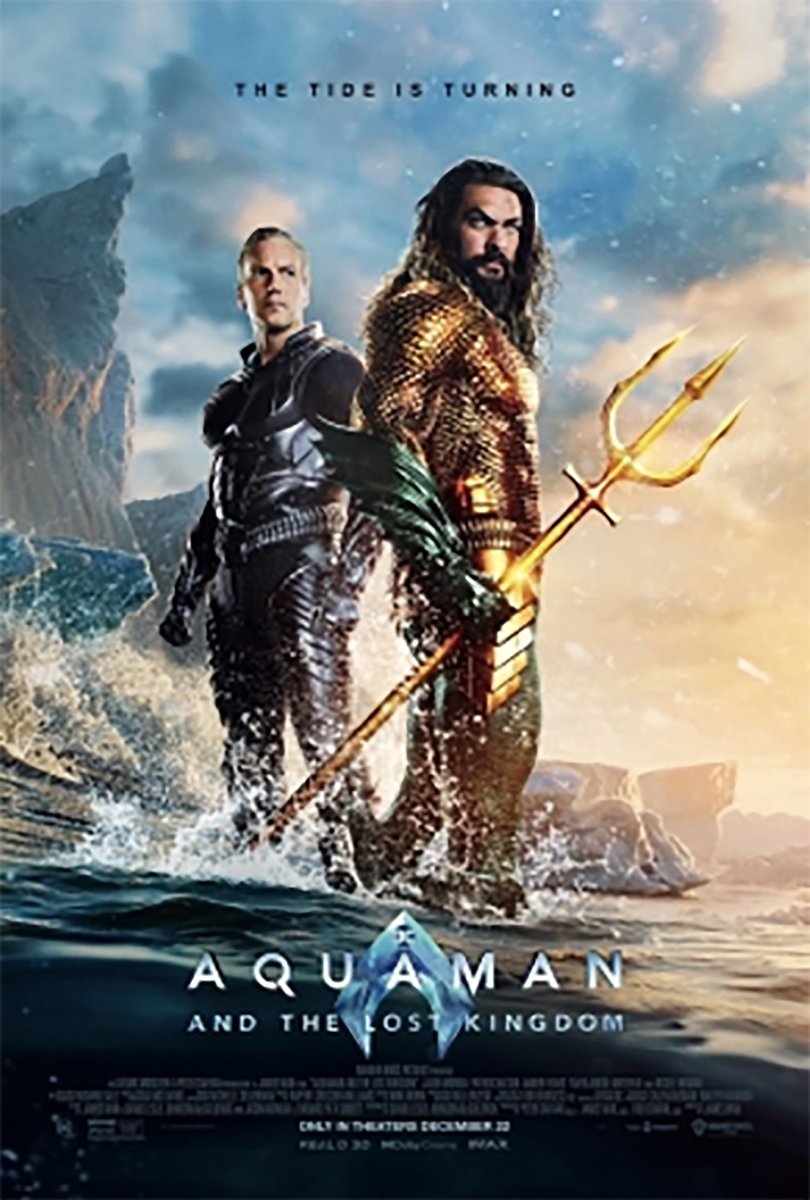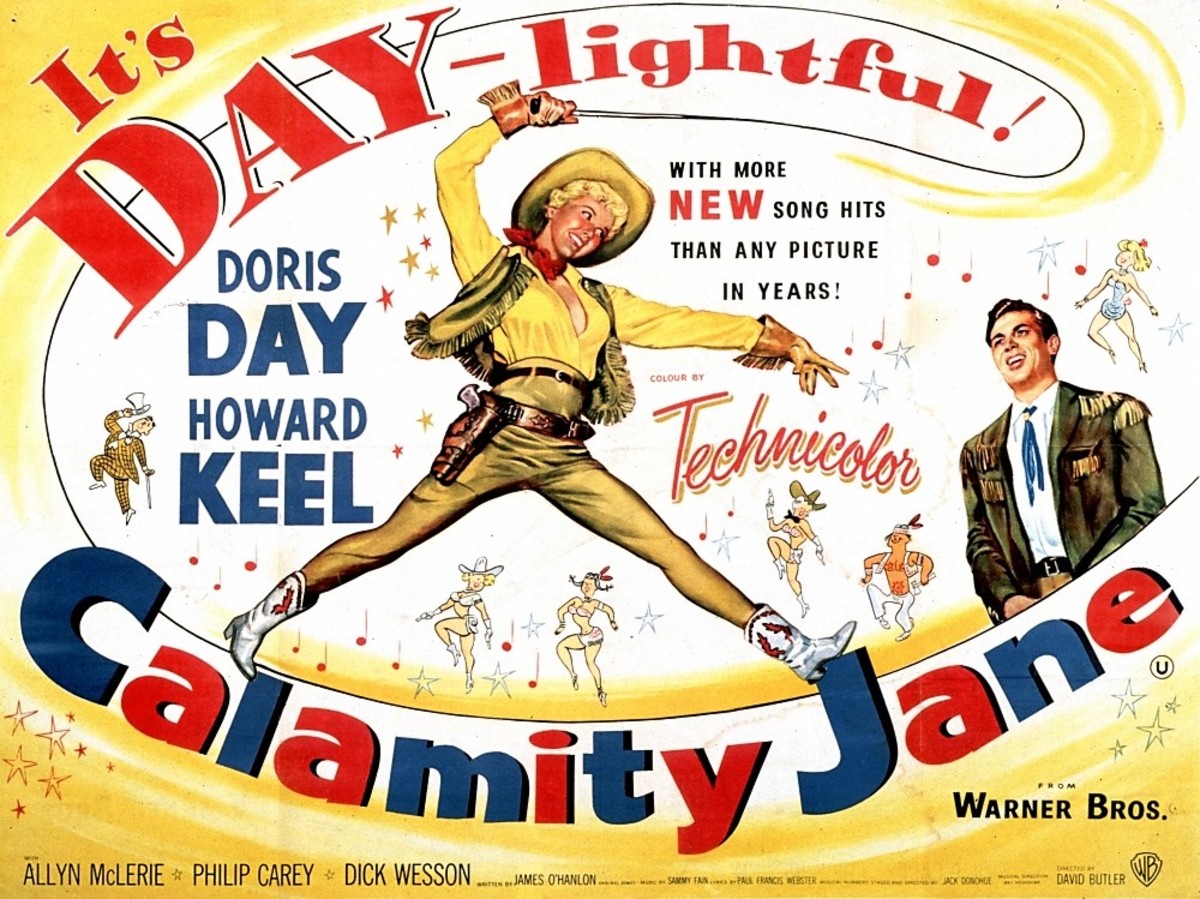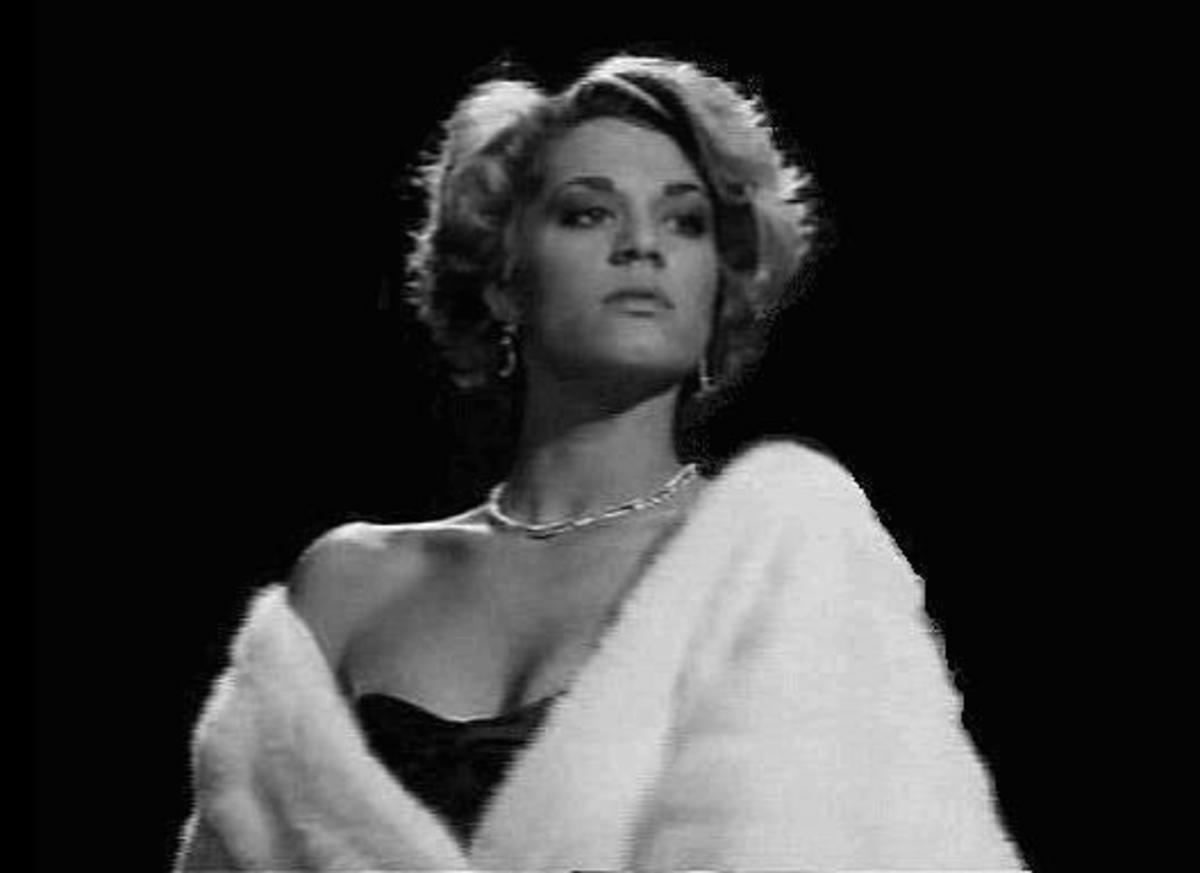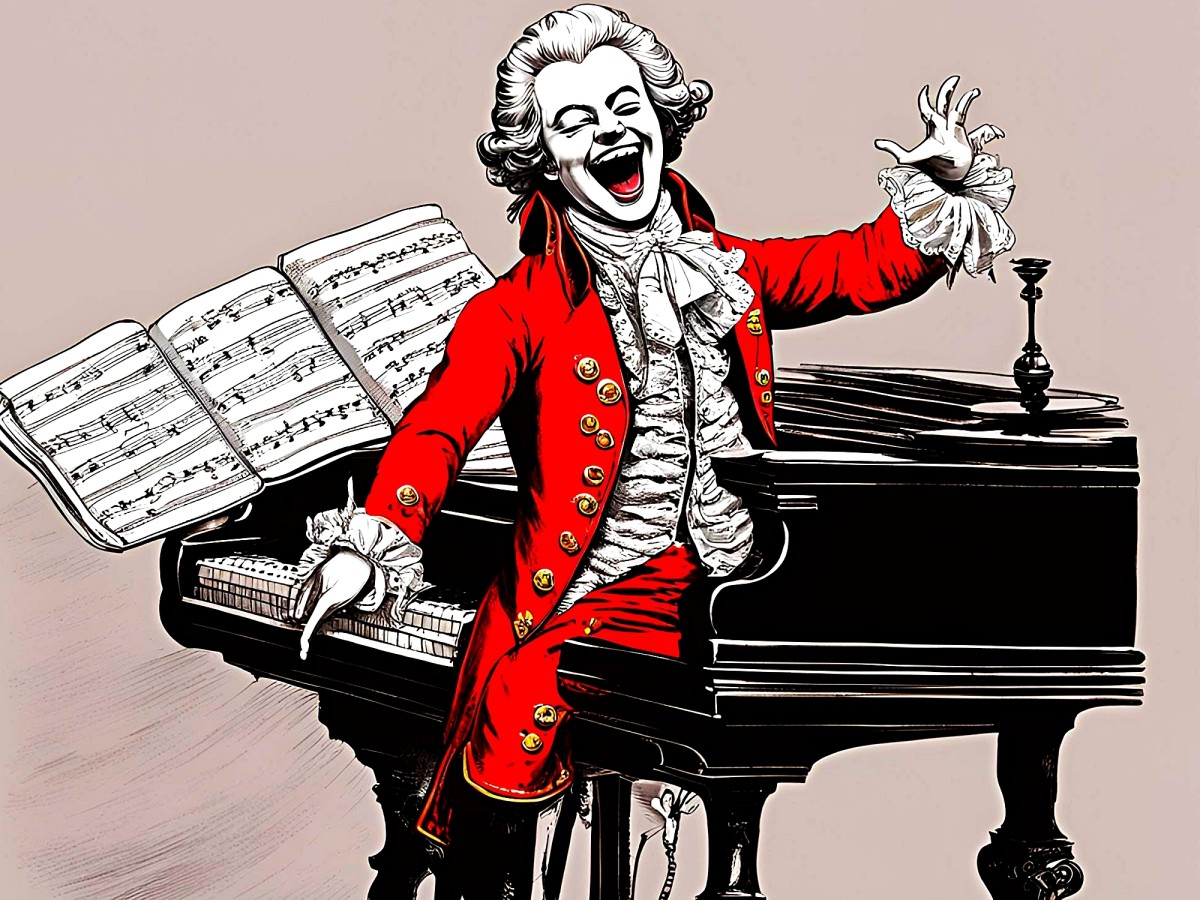Nine In Review
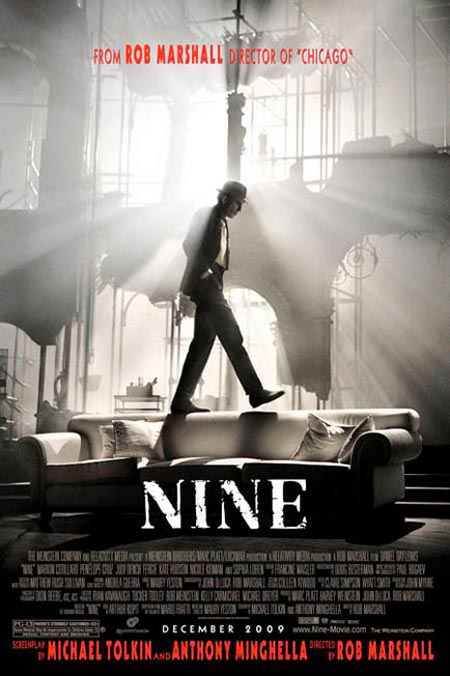
If you haven't already seen it, do you plan on seeing Nine?
Something Was Definitely Lost In Translation
Does the idea of seeing a movie musical intrigue you? Have you seen a stage production of Nine and are curious about how much it has changed now that it’s in movie form? Are you simply a fan of one of the many actors (Daniel Day-Lewis, Marion Cotillard, Judi Dench and Nicole Kidman to name a few.) who are featured in this film? If you answered in the affirmative to any of these questions, than it is very likely that Nine might be the movie for you.
Based on the 1982 musical of the same name by Arthur Kopit (Book) and Maury Yeston (Music & Lyrics) which was based on the Federico Fellini film 8 ½, Nine tells the story of a fifty-something famous Italian film director named Guido Contini (Daniel Day-Lewis) who is in a very bad place. You see his last few films have been flops and, unless his next film is a major success, his career will be finished. If that weren’t enough, Contini is still trying to recover from losing his mother (Sophia Loren) and his youth. When the film opens, we learn that although Contini has yet to write a script for the film, he has already ordered a set to be built and costumes to be made. Though he can get away with lying to nearly everyone about the existence of the script, he has no choice, but to tell the truth to Lilli (Judi Dench), his confidante and costume designer. Though she advises him to stop preparations, he refuses. Instead, he holds a press conference where he continues to uphold his lie. At the conference, he encounters Stephanie (Kate Hudson), an American fashion journalist, who immediately perks his interest. Nevertheless, overwhelmed by the paparazzo’s questions, he runs out of the conference, hops in his car and drives until he reaches a resort. He decides to stay there indefinitely so he can rest and, hopefully, write a masterpiece. Feeling a touch of homesickness, he calls his wife, Luisa (Marion Cotillard), who suggests she meet him at the resort so they can be together. Coming to his senses, he tells her that that isn’t necessary and calls his mistress, Carla (Penelope Cruz) who rushes to join him. Instead of having her stay at the resort, he hires a room for her in a rundown hotel near the train station. Though disappointed, Carla agrees to stay there for as long as “her Guido” wants her to. When a sexually satiated Contini returns to the resort, he is shocked to find that his producer has moved the production to the resort. He is given an even greater shock the following evening when Luisa appears at the resort to join her husband and the crew for dinner. We later learn that Lilli asked Luisa to come in the hope that it would get her husband back on track career wise, but Contini believes her appearance to be something more personal. He silently vows to leave Carla, but obviously hearing his unspoken words, Carla arrives unexpectedly at the resort and, believing this to have been orchestrated by her husband, a heartbroken Luisa retreats to her room. Can Contini save his marriage? Will Claudia (Nicole Kidman), his lifelong leading lady, help save his career by agreeing to sign on to the film without reading the script? Why does Saraghina (Fergie) keep wandering into his mind? To learn the answers to these burning questions, you must see the movie!
Having seen Nine in its play form several years ago and liked it, I was happy to hear that Rob Marshall (director) was planning on making a movie of it. Since he had done such a great job with Chicago, I believed he would do the same with Nine. Unfortunately, this was not the case. To begin with, many of the songs from the show have been cut. Though songs were cut from Chicago, in my opinion, you didn’t lose any key story points due to the cuts. With Nine, you do. As a result, the story feels choppy and plays more like an extended music video than an actual movie. In all honesty, the changes are so extreme that the new writers (Anthony Minghella and Michael Tolkin) should’ve have just given their script another name and neglected to mention that it was based on Kopit and Yeston’s Nine. True, all of the play’s characters (minus the unnecessary Stephanie) are present in the movie and some of the key plot points from the play (It is set in Venice of the 1960s. Guido is a womanizer. Guido struggles to make a movie. His mother is his moral compass. The movie he creates does mirror his life.) are still present, but what is lost is felt deeply. Most of note is the treatment of the character Luisa. In the movie, Luisa is a former Contini leading lady who stopped making films once she became his wife. She loves him unconditionally and supports him in everything he does. This woman is too meek to threaten her important husband with divorce. In the play, Guido and Luisa go to the resort together in an attempt to save their marriage. Luisa has made it clear that unless he stops being the man, he has become she will leave him. They thrive on their love for each other and, while the romance has gone, you know they (especially Guido) would die without the other. When she finally puts her foot down, she does in it in a way that every scorned woman can be proud of and care to emulate. The film’s Luisa decides to go in another direction and seems to become just another Contini tramp. For someone who loved this character and was motivated to see this movie because of her, this change is almost too much to stomach. In short, Marshall has taken the heart of this play and the redeeming qualities of Guido and replaced them with the “in your face sexuality” that made Chicago a success. How disappointing.
On the acting front, when I heard that Day-Lewis was going to play Contini I was skeptical. Though he is a terrific actor, I wondered if, due to the singing portion of the role, he was right for the part. Unfortunately, I was correct in his doubting his musical prowess. As I listened to him sing, I was reminded of another actor who, in my opinion, also sounded out of place in a musical: Yul Brynner. Like Day-Lewis, Brynner was a fantastic actor who deserved every award he received. One of his most famous roles was that of the King in the Rodgers and Hammerstein musical, The King and I. As he played this role not only on Broadway and in numerous tours of it, but also in the 1956 film, we know that playing the King was something he was good at. Having become familiar with his work through this film and willingly watched it many times, I will defend his acting performance in that movie without hesitation. His king is a perfect mixture of ferocity, love, closed-mindedness and pride. When his character dies, you have no choice, but to cry at this loss. He was a good king, if not a stubborn one. This having been said, knowing that Marni Nixon did Deborah Kerr’s vocals for the movie, I never will understand why someone didn’t do vocals for Brynner. The only solution I can find is that most of his singing is sing talking and that the role didn’t call for anything more than that. Yet, in the case of Day-Lewis, I know from seeing Nine as a play that his character’s vocals are meant to sound a lot fuller than what they sounded like in the movie. Realizing that his singing skills were at the level that they are at, he shouldn’t have been cast in the role. In other words, sing talking is okay for Kings who are filled with hot air, but not for Italian directors who can only communicate their deepest desires through song.
As far as the rest of the cast is concerned, the women are fantastic. Cruz, Kidman and Hudson are surprisingly good singers and do well in their roles. Though certainly not a singer, Dench portrays Lilli with the panache we expect from her. The real standout performance of the film comes from Marion Cotillard. As the dutiful wife, she is heartbreaking and beautiful and deserves all of the accolades she’s receiving. My only complaint involving the actresses is that they weren’t given more screen time. True, it’s doubtful that they could’ve saved the film, but I’m sure they would’ve made it more tolerable. In any case, we’ll never know.
Both versions of Nine prove to show the audience what happens when you lead a life of excess. Believing his life to be impervious to time, Contini can’t understand how he has become a man in his fifties who has run out of story ideas and the energy to keep up with the many women in his life. He spends scenes wondering how he got to be “so old” and when making flops became the norm in his career. He longs to be young again when life was simpler, and his mother still lived. He knows he is going to lose his wife if he doesn’t shape up, but he can’t figure out how to do that when he has so much else on his plate. In short, while he was cheating on Luisa, he didn’t realize he was also cheating on his past ideals. Now that he has come to realize these things, he doesn’t know what to do. Like Contini, we too cheat ourselves by trying to balance too many things and by getting greedy. Though I’m sure not many of us have nine women (or men) on our minds, I’m positive we have at least nine things on our mind. We needlessly overtax ourselves by trying to be something to everyone in order to be something to ourselves. Like Guido, we inevitably will have a meltdown one day if we’re not careful. The time to prioritize and overcome our past wrong turns is now. No one is impervious to time and the affects it has on us.
Considering all that I’ve said, I don’t know whether or not I can recommend Nine. Taken separately, it’s a visually interesting movie with performances from some of the most entrancing women of the modern era. Compared to the play, it’s a disaster. Having read the reviews of others, I know that I’m not alone in my opinion. On reviews alone, it’s obvious the film’s run won’t last long. However, centering only on the economics of the film, it has been made public knowledge that it cost around $64 million to produce and, to date, has only made about $5.5 million in ticket sales. This can’t bode well with the producers and could mean a very short run at the theaters. Were I you, I’d save my money and plan on renting this movie in a couple of months. If you’re a fan of the play though, I’d skip it all together.
This content reflects the personal opinions of the author. It is accurate and true to the best of the author’s knowledge and should not be substituted for impartial fact or advice in legal, political, or personal matters.
© 2010 Lincy A. Walsh


